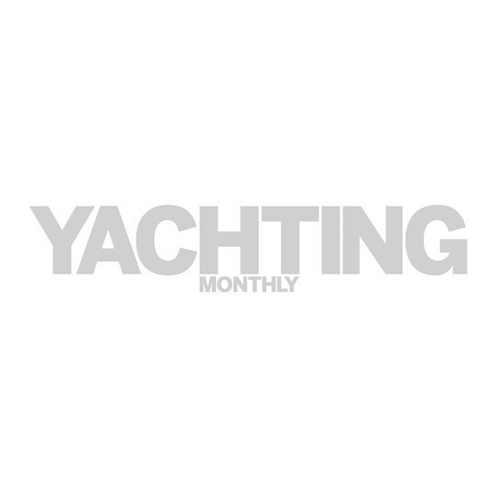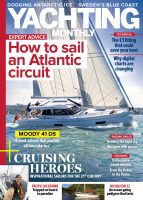Chairman of the Yachtmaster Qualification Panel, James Stevens looks back at half a century of the Yachtmaster qualification
The RYA started examining Yachtmaster candidates in 1973 but in fact the very first Yachtmaster certificates were awarded much earlier. In 1938 at the request of the Admiralty, the Board of Trade began to hold examinations for Yachtmasters primarily for Royal Navy reservists but also for amateur yacht skippers. It was prescient of the Admiralty to consider a military need for a fleet of competent yachtsmen as that is exactly what was required two years later at Dunkirk.
In the early 1970s the RYA took over the administration of the exam after a protracted negotiation led by Commander Bill Anderson, who had recently left the Royal Navy and had been appointed RYA Cruising Secretary. It was an innovative idea for a sports governing body to run a Department for Transport test but under Bill’s leadership it became a gold standard for amateur and professional yacht skippers. The first RYA yachtmaster certificate was issued in 1973 on behalf of the RYA and the Board of Trade.
To support the training for the exam the RYA introduced a series of courses taught at recognised practical and shorebased schools, the latter mainly local authority evening classes. Prior to this, several organisations, notably the armed forces, had run their own courses and assessments but Bill convinced them they would all benefit from a national programme. For 50 years the RYA cruising scheme has provided knowledge to thousands of sailors.

In 1973 the Ssail cruising scheme and Yachtmaster qualification was introduced
History of RYA training
The Board of Trade Yachtmaster exam was an oral test only. During the 1970s RYA candidates for Yachtmaster Offshore could take a practical course followed by an oral test or be examined directly with a practical assessment.
A mileage requirement was introduced. Assessments for the lower level of Coastal Skipper (now Yachtmaster Coastal) remained as an oral test following a course until the mid 1980s. Subsequently all offshore and coastal skipper candidates had to pass a practical exam as they do now and the mileage and experience requirements were increased.
The Yachtmaster Ocean exam has remained as an oral test following an ocean passage. RYA instructors and examiners are qualified following a training and assessment course. The RYA also publishes books on every aspect of the syllabus and many other nautical subjects, and has become Europe’s largest nautical publisher.
In 1984 the British barque Marques sank off Bermuda during a Tall Ships Race with the loss of 19 lives. In response, the Board of Trade’s successor, the Maritime and Coastguard Agency (MCA) introduced a code of practice for equipment and stability for sail training vessels and sailing school yachts. Later this was extended to all small commercial vessels.

In 1976 the powerboat training scheme was introduced
Mandatory qualification
Commercial Yachtmaster qualifications, which were suggested by the RYA, were incorporated into the Code. Before this time there was no legal requirement for skippers to be qualified for carrying up to 12 paying passengers on yachts under 24m. In the yachting sector the Code made little difference to the accident rate, as most professionals already held a Yachtmaster certificate, but it did have an impact on sea angling and other commercial activities.
Professional skippers take the same practical Yachtmaster test as amateurs but in addition attend a sea survival course, have a medical fitness examination and must pass an online test on the rules and regulations.
In spite of the RYA’s position as the provider of compulsory certificates for commercial skippers, it has successfully campaigned against the introduction of mandatory licensing for recreational boat users.

In 202 Princess Anne presented the first ‘Yachtmaster of the Year’ award
Before 2002 exams were almost always held in the UK but in response to demand, the RYA expanded the scheme worldwide, recognising training centres and examining Yachtmasters in the Mediterranean, Australia, New Zealand, South Africa, the Caribbean and USA. Currently there are 336 centres offering courses in 37 countries.
The word Yachtmaster, for training and exams, was trademarked by the RYA throughout the world and the certificates, which looked similar to those of the Merchant Navy were redesigned to include anti-fraud features.
RYA Yachtmaster rapidly became the world leader for yachting qualifications. Currently just over half the 3,500 candidates examined annually are non-British citizens. The MCA introduced manning regulations for yachts over 200 tons, the Large Yacht Code and RYA Yachtmaster was chosen as a pre-entry qualification. About 20% of Yachtmaster candidates progress to these MCA certificates.

In 2003 the Yachtmaster name trademarked internationally
Revisions underway
From the RYA’s point of view, the challenge of administering the Yachtmaster exam is to ensure the standard is the same all over the world. Examiners and instructors are updated regularly and reassessed at sea every five years. An independent quality assurance company, The Leadership Factor, calls 50 candidates a month and asks them about their experience of the exam. Examiners and the RYA receive these reports, which record exactly what the candidate said about their exam and examiner. A summary of the results is published on the RYA website and shows a high level of satisfaction, even from the fails.

A young James Stevens runs a Yachtmaster Instructor course
A joint RYA MCA committee, the Yachtmaster Qualification Panel, oversees standards and the syllabus and can, after a hearing, withdraw qualifications for a period of time, usually between six months and 10 years after which the exam may be retaken. There are usually no more than two hearings a year and they often follow a serious accident such as loss of a vessel or a fatality.
In 2023 a Yachtmaster offshore candidate would recognise many of the subjects in the 1970s syllabus. Navigation, tides, pilotage, weather, boat handling and passage making are all still there, but today’s candidate is, of course, expected to be proficient with GPS and modern techniques.
The syllabus is regularly updated and there is a major revision underway. Yachts and navigation have changed dramatically, so it is important the RYA is not teaching
the history of yachting.
Enjoyed reading this?
A subscription to Yachting Monthly magazine costs around 40% less than the cover price.
Print and digital editions are available through Magazines Direct – where you can also find the latest deals.
YM is packed with information to help you get the most from your time on the water.
-
-
- Take your seamanship to the next level with tips, advice and skills from our experts
- Impartial in-depth reviews of the latest yachts and equipment
- Cruising guides to help you reach those dream destinations
-
Follow us on Facebook, Twitter and Instagram.





